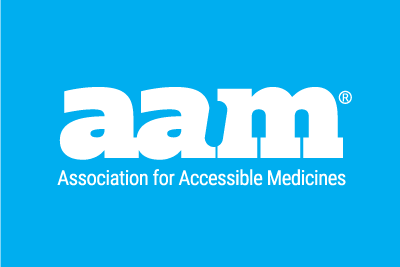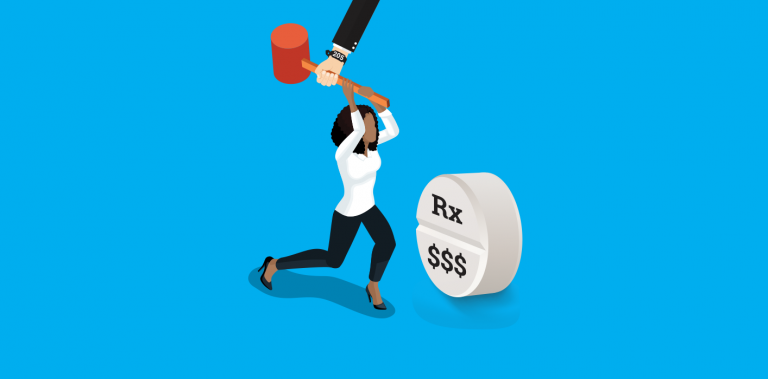In the manager’s amendment to the Lower Health Care Costs Act released yesterday, several changes were included to Section 205 (preventing blocking of generics). For the 180-day clock to be triggered under Section 205 as originally proposed, four conditions needed to occur: 1) a subsequent applicant has received tentative approval that could be made final “but for” the first applicant’s eligibility for 180-day exclusivity; 2) 30 months have passed since the first applicant(s) submitted its application(s) to the FDA; 3) at least one first applicant no longer has a 30-month stay in place; and 4) no first applicant has been approved, regardless of what may happen in the future with respect to the first applicant’s approval. With me so far?
Notably, the manager’s amendment added language to preclude scenarios where a subsequent applicant has entered into a patent settlement agreement that would delay commercial marketing. Second, the manager’s amendment increases the number of months from 30 to 33 since the first applicant’s submitted its application to the FDA. Third, the fourth condition (DD) related to the FDA’s approval of the first applicant’s application was moved to the introductory language of provision (bb). Finally, the FDA is directed to, within 60 days of enactment, provide information to all applicants in order for them to assess whether the conditions are satisfied. I know, it’s complicated.
While these are positive steps, there are still several, common situations where a first applicant – who is still actively pursuing FDA approval – would lose the benefits of the 180-day incentive.
Scenario #1 – Failure to Launch. While a subsequent applicant could receive final approval from the FDA under Section 205 and potentially expedite generic entry, there is nothing that requires the subsequent applicant to launch its generic. The entire goal of the provision would thus be unmet. The first condition (AA) could be amended to require subsequent applicants to launch within 30 days. This precludes a scenario where a first applicant loses its exclusivity and patients are still unable to access generic alternatives.
Scenario #2 – Final Approval Arrives, Only Too Late. Thirty-three months is a bright line. Either the FDA has given final approval to the first applicant or the application is still pending. The first applicant could be actively pursuing final approval and waiting on the FDA for any number of reasons – only to see its 180-day clock start to run. While the FDA’s approval time improved last year, the median approval time in the year prior was 37 months. But the median is only the midpoint – and there are still a significant number of applicants that are approved later than this timeline. The second condition (BB) could be increased to 37 months.
Scenario #3 – Patents Block the First. Hatch-Waxman is constructed around policies designed to protect the brand-name pharmaceutical companies’ patents. Near automatic 30-month stays are imposed on the FDA’s approval of a first applicant’s application (while the brand pursues litigation in court). And, while a generic challenges brand patents (a Paragraph IV certification), not all of a brand’s patents are challenged this way. Often times, a generic simultaneously challenges a few patents (under Paragraph IV), while allowing other patents to expire (a Paragraph III certification). Under Section 205, 30-month stays and pending Paragraph III certifications could be the reasons why the first applicant has not received final approval. The third (CC) and fourth (DD) (re-inserted) could be amended so that Section 205 applies only when all 30-month stays have been terminated and only impacts first applicants “who could lawfully receive approval.”
Without addressing these common situations, Section 205 would significantly erode the value of the 180-day incentive for first generics to challenge brand-name drug patents. If the 180-day clock starts when a first applicant is waiting on the FDA or is prevented from launching due to patents, significant uncertainty is introduced into a system that has yielded (and continues to!) significant savings to patients. And, if there’s no requirement on the subsequent applicant to launch, the end result may be a system where there are only losers – and where no one wins with earlier access to more affordable generic medicine.
Send a Message to Congress Now
Chip Davis Op-Ed: Congress: Don't Punish American Patients
Campaign: Tell Congress: BLOCK 205!
A January 2020 report from Matrix Global Advisors, “The Unintended Economics of the BLOCKING Act,” finds the delay of just one generic medicine will increase prescription drug costs for patients by $1.7 billion.
By Erik Komendant, AAM Vice President, Federal Government Affairs



